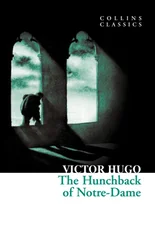Victor Hugo - The Man Who Laughs
Здесь есть возможность читать онлайн «Victor Hugo - The Man Who Laughs» — ознакомительный отрывок электронной книги совершенно бесплатно, а после прочтения отрывка купить полную версию. В некоторых случаях можно слушать аудио, скачать через торрент в формате fb2 и присутствует краткое содержание. Жанр: literature_19, foreign_antique, foreign_prose, на английском языке. Описание произведения, (предисловие) а так же отзывы посетителей доступны на портале библиотеки ЛибКат.
- Название:The Man Who Laughs
- Автор:
- Жанр:
- Год:неизвестен
- ISBN:нет данных
- Рейтинг книги:3 / 5. Голосов: 1
-
Избранное:Добавить в избранное
- Отзывы:
-
Ваша оценка:
- 60
- 1
- 2
- 3
- 4
- 5
The Man Who Laughs: краткое содержание, описание и аннотация
Предлагаем к чтению аннотацию, описание, краткое содержание или предисловие (зависит от того, что написал сам автор книги «The Man Who Laughs»). Если вы не нашли необходимую информацию о книге — напишите в комментариях, мы постараемся отыскать её.
The Man Who Laughs — читать онлайн ознакомительный отрывок
Ниже представлен текст книги, разбитый по страницам. Система сохранения места последней прочитанной страницы, позволяет с удобством читать онлайн бесплатно книгу «The Man Who Laughs», без необходимости каждый раз заново искать на чём Вы остановились. Поставьте закладку, и сможете в любой момент перейти на страницу, на которой закончили чтение.
Интервал:
Закладка:
Victor Hugo
The Man Who Laughs A Romance of English History
PRELIMINARY CHAPTER
I
Ursus and Homo were fast friends. Ursus was a man, Homo a wolf. Their dispositions tallied. It was the man who had christened the wolf: probably he had also chosen his own name. Having found Ursus fit for himself, he had found Homo fit for the beast. Man and wolf turned their partnership to account at fairs, at village fêtes, at the corners of streets where passers-by throng, and out of the need which people seem to feel everywhere to listen to idle gossip and to buy quack medicine. The wolf, gentle and courteously subordinate, diverted the crowd. It is a pleasant thing to behold the tameness of animals. Our greatest delight is to see all the varieties of domestication parade before us. This it is which collects so many folks on the road of royal processions.
Ursus and Homo went about from cross-road to cross-road, from the High Street of Aberystwith to the High Street of Jedburgh, from country-side to country-side, from shire to shire, from town to town. One market exhausted, they went on to another. Ursus lived in a small van upon wheels, which Homo was civilized enough to draw by day and guard by night. On bad roads, up hills, and where there were too many ruts, or there was too much mud, the man buckled the trace round his neck and pulled fraternally, side by side with the wolf. They had thus grown old together. They encamped at haphazard on a common, in the glade of a wood, on the waste patch of grass where roads intersect, at the outskirts of villages, at the gates of towns, in market-places, in public walks, on the borders of parks, before the entrances of churches. When the cart drew up on a fair green, when the gossips ran up open-mouthed and the curious made a circle round the pair, Ursus harangued and Homo approved. Homo, with a bowl in his mouth, politely made a collection among the audience. They gained their livelihood. The wolf was lettered, likewise the man. The wolf had been trained by the man, or had trained himself unassisted, to divers wolfish arts, which swelled the receipts. "Above all things, do not degenerate into a man," his friend would say to him.
Never did the wolf bite: the man did now and then. At least, to bite was the intent of Ursus. He was a misanthrope, and to italicize his misanthropy he had made himself a juggler. To live, also; for the stomach has to be consulted. Moreover, this juggler-misanthrope, whether to add to the complexity of his being or to perfect it, was a doctor. To be a doctor is little: Ursus was a ventriloquist. You heard him speak without his moving his lips. He counterfeited, so as to deceive you, any one's accent or pronunciation. He imitated voices so exactly that you believed you heard the people themselves. All alone he simulated the murmur of a crowd, and this gave him a right to the title of Engastrimythos, which he took. He reproduced all sorts of cries of birds, as of the thrush, the wren, the pipit lark, otherwise called the gray cheeper, and the ring ousel, all travellers like himself: so that at times when the fancy struck him, he made you aware either of a public thoroughfare filled with the uproar of men, or of a meadow loud with the voices of beasts – at one time stormy as a multitude, at another fresh and serene as the dawn. Such gifts, although rare, exist. In the last century a man called Touzel, who imitated the mingled utterances of men and animals, and who counterfeited all the cries of beasts, was attached to the person of Buffon – to serve as a menagerie.
Ursus was sagacious, contradictory, odd, and inclined to the singular expositions which we term fables. He had the appearance of believing in them, and this impudence was a part of his humour. He read people's hands, opened books at random and drew conclusions, told fortunes, taught that it is perilous to meet a black mare, still more perilous, as you start for a journey, to hear yourself accosted by one who knows not whither you are going; and he called himself a dealer in superstitions. He used to say: "There is one difference between me and the Archbishop of Canterbury: I avow what I am." Hence it was that the archbishop, justly indignant, had him one day before him; but Ursus cleverly disarmed his grace by reciting a sermon he had composed upon Christmas Day, which the delighted archbishop learnt by heart, and delivered from the pulpit as his own. In consideration thereof the archbishop pardoned Ursus.
As a doctor, Ursus wrought cures by some means or other. He made use of aromatics; he was versed in simples; he made the most of the immense power which lies in a heap of neglected plants, such as the hazel, the catkin, the white alder, the white bryony, the mealy-tree, the traveller's joy, the buckthorn. He treated phthisis with the sundew; at opportune moments he would use the leaves of the spurge, which plucked at the bottom are a purgative and plucked at the top, an emetic. He cured sore throat by means of the vegetable excrescence called Jew's ear. He knew the rush which cures the ox and the mint which cures the horse. He was well acquainted with the beauties and virtues of the herb mandragora, which, as every one knows, is of both sexes. He had many recipes. He cured burns with the salamander wool, of which, according to Pliny, Nero had a napkin. Ursus possessed a retort and a flask; he effected transmutations; he sold panaceas. It was said of him that he had once been for a short time in Bedlam; they had done him the honour to take him for a madman, but had set him free on discovering that he was only a poet. This story was probably not true; we have all to submit to some such legend about us.
The fact is, Ursus was a bit of a savant, a man of taste, and an old Latin poet. He was learned in two forms; he Hippocratized and he Pindarized. He could have vied in bombast with Rapin and Vida. He could have composed Jesuit tragedies in a style not less triumphant than that of Father Bouhours. It followed from his familiarity with the venerable rhythms and metres of the ancients, that he had peculiar figures of speech, and a whole family of classical metaphors. He would say of a mother followed by her two daughters, There is a dactyl; of a father preceded by his two sons, There is an anapæst; and of a little child walking between its grandmother and grandfather, There is an amphimacer . So much knowledge could only end in starvation. The school of Salerno says, "Eat little and often." Ursus ate little and seldom, thus obeying one half the precept and disobeying the other; but this was the fault of the public, who did not always flock to him, and who did not often buy.
Ursus was wont to say: "The expectoration of a sentence is a relief. The wolf is comforted by its howl, the sheep by its wool, the forest by its finch, woman by her love, and the philosopher by his epiphonema." Ursus at a pinch composed comedies, which, in recital, he all but acted; this helped to sell the drugs. Among other works, he had composed an heroic pastoral in honour of Sir Hugh Middleton, who in 1608 brought a river to London. The river was lying peacefully in Hertfordshire, twenty miles from London: the knight came and took possession of it. He brought a brigade of six hundred men, armed with shovels and pickaxes; set to breaking up the ground, scooping it out in one place, raising it in another – now thirty feet high, now twenty feet deep; made wooden aqueducts high in air; and at different points constructed eight hundred bridges of stone, bricks, and timber. One fine morning the river entered London, which was short of water. Ursus transformed all these vulgar details into a fine Eclogue between the Thames and the New River, in which the former invited the latter to come to him, and offered her his bed, saying, "I am too old to please women, but I am rich enough to pay them" – an ingenious and gallant conceit to indicate how Sir Hugh Middleton had completed the work at his own expense.
Читать дальшеИнтервал:
Закладка:
Похожие книги на «The Man Who Laughs»
Представляем Вашему вниманию похожие книги на «The Man Who Laughs» списком для выбора. Мы отобрали схожую по названию и смыслу литературу в надежде предоставить читателям больше вариантов отыскать новые, интересные, ещё непрочитанные произведения.
Обсуждение, отзывы о книге «The Man Who Laughs» и просто собственные мнения читателей. Оставьте ваши комментарии, напишите, что Вы думаете о произведении, его смысле или главных героях. Укажите что конкретно понравилось, а что нет, и почему Вы так считаете.












